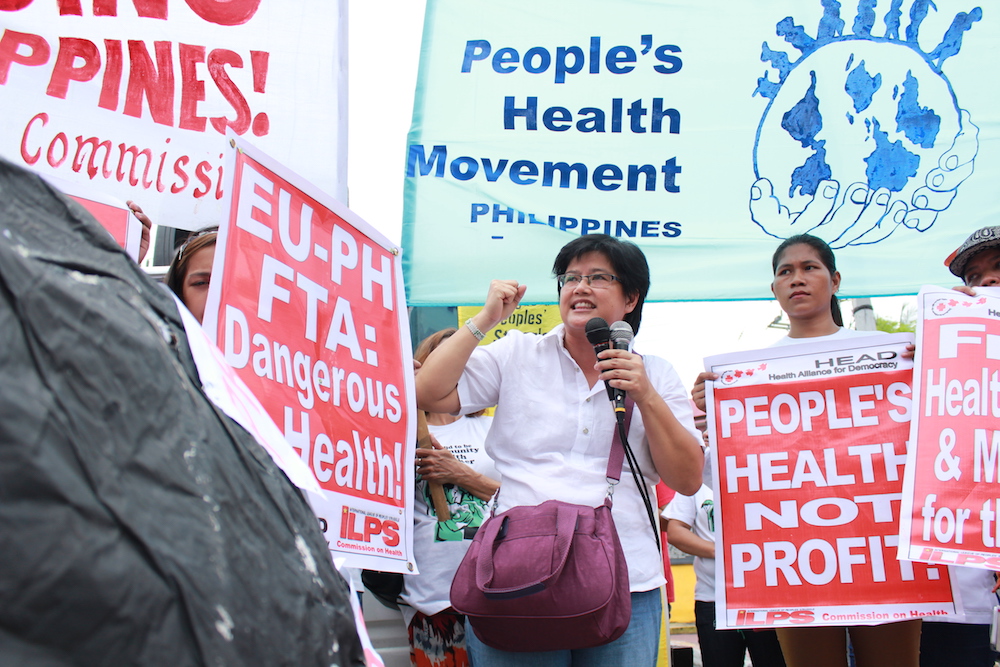EU upgrades IPR category of PH in terms of protection, enforcement
Manila Bulletin | 26 April 2018
EU upgrades IPR category of PH in terms of protection, enforcement
By Bernie Cahiles-Magkilat
Despite serious concerns on copyright piracy, the EU has raised the Philippines’ standing from “bad” to “better” in the area of protection and enforcement of intellectual property rights (IPR), according to the latest EU Commission report.
The 2018 EU IPR Report, a biennial survey carried out by the European Commission (DG Trade) in 2016, is aimed at identifying third countries’ state of IPR protection and enforcement to update its so-called “priority countries.” The EU priority countries are classified based on three categories 1, 2, and 3 with Priority 1 as the lowest and Priority 3 as the least IPR violative country.
“The Philippines has taken some significant steps to improve the IPR environment over the past two years. These steps included a new law with amendments to the Intellectual Property Code, such as the introduction of the landlords’ liability for the sale of IPR-infringing goods in their premises and the granting of IPR enforcement functions to the Philippines IP Office (IPOPHL),” according to the recent EU report.
The report also cited the Philippines continued initiatives being at the forefront of IP discussions within ASEAN with committed staff at the IPOPHL. In 2017, the report noted, the Philippines IP Office launched a consultation process towards an enhanced national IP strategy.
EU, however, lumped the Philippines along with China, Ukraine, Russia, Thailand, and Mexico as countries with serious copyright piracy, both online and offline. It said that while copyright piracy is a global problem, it is identified as a particularly serious one in these countries.
It also noted of reports that Subic Bay Port has been used as a transit and storage point for contraband goods and is frequently used as a ‘fast boat’ transit point for goods to re-enter into China.
The report gave weight to the EU stakeholders report that Philippine court procedures are overly long and unreasonably complex and the penalties and fines prescribed by the IP Code are not sufficiently deterrent. Despite the progress, counterfeiting and piracy are a serious problem, particularly in the digital environment and on copyright related matters.
EU stakeholders also reported that another area of concern is the absence of an effective system to protect undisclosed test and other data generated to obtain marketing approval for pharmaceutical and agrochemical products against unfair commercial use, as well as unauthorized disclosure. There seems to be no law that specifically addresses regulatory data protection for pharmaceuticals and the protection of trade secrets.
EU stakeholders also claimed that patentability requirements do not seem to meet international standards, because the requirement to prove the “enhanced efficacy” of the pharmaceutical product when applying for patent protection, seriously limits the patentable subject matter. The information on “enhanced efficacy” is generated in the course of the clinical trials which are usually run only after the patent is granted. According to the OECD-EUIPO study Mapping the Real Routes of Trade in Fake Goods, the Philippines appears to be an important producer of counterfeit footwear as well as leather articles and handbags.
The Philippines has not also ratified the Geneva Act of the Hague Agreement Concerning the International Registration of Industrial Designs and the 1991 Act of the International Convention for the Protection of New Varieties of Plants (UPOV 1991).
The report, however, said that EU continues to engage the Philippines. In 2016, the Philippines and EU launched negotiations in 2016 with the intention to conclude a free trade agreement. The negotiations cover all intellectual property rights and also civil and border enforcement. The IPR chapter aims at complementing the efforts of the IPOPHL to further increase the level of IPR protection and enforcement in the Philippines in line with international norms and standards.
In addition, the EU-ASEAN Project on the Protection of Intellectual Property Rights (ECAP III)80 continued until February, 2017. It aims at supporting ASEAN regional integration and at further harmonizing the systems for IP creation, protection, administration and enforcement in the ASEAN region, including the Philippines. Among its achievements, the project led to an integration of ASEAN member states into the ASEAN TMview, TMclass and DesignView databases. An ASEAN-specific portal for each of the databases has been set up, providing easily accessible trademark and design data.






